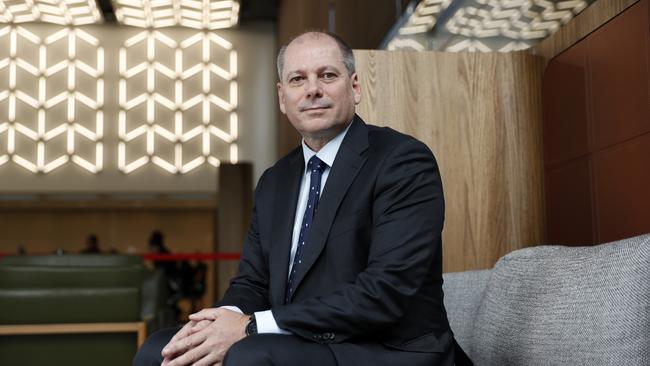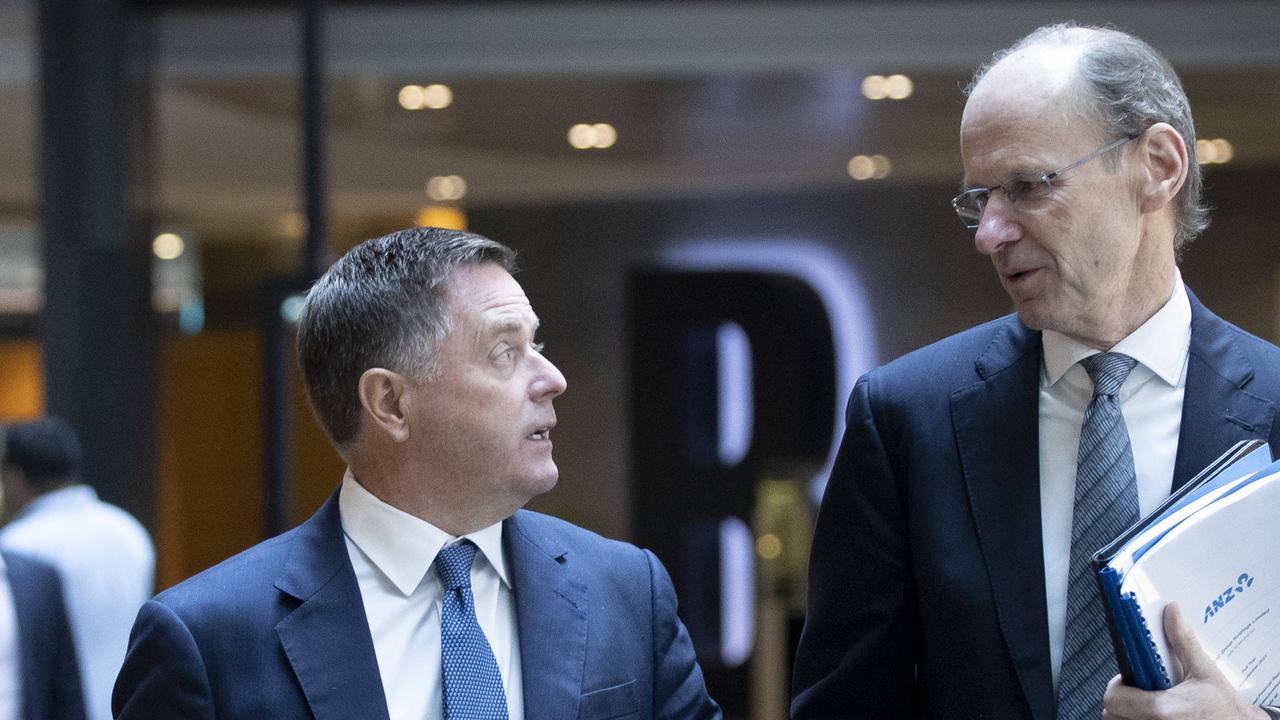Westpac: work to do on financial crime
Westpac chief Peter King says the bank has materially reduced financial-crime risks, although there it still ‘significant work’ to do to improve management and culture.

Westpac chief executive Peter King says the bank has materially reduced financial crime risks after forking out a record $1.3bn penalty last year, although there is still work to do to improve risk management and culture.
Westpac has endured a turbulent period after being accused by regulator Austrac of more than 23 million contraventions of anti-money laundering and terrorism financing laws, some that reflected facilitating payments linked to child exploitation. The explosive allegations led to the record penalty being paid to Austrac in 2020.
In an environmental, social, and governance (ESG) investor briefing on Tuesday, Mr King said Westpac had closed all the matters referenced in Austrac’s legal statement of claim against the bank. They included updating transaction monitoring processes, fixing reporting and boosting the knowledge of financial crime risk within all layers of the bank.
Westpac’s multi-year program of work to fix systems and improve governance after Austrac revealed the damning failings are expected to continue into 2024.
“It will take time but we are heading in the right direction,” Mr King said, noting there would still be costs associated with the program for some years.
“There is still significant work to do in 2022,” he added. “It’s 2023 and 2024 where it tails off so we still see 2022 as a big year for this program.”
Westpac’s design activities for the program – dubbed CORE internally – would be largely complete by the end of this year, with the focus then shifting to embedding the sweeping changes. The Austrac action claimed the job of Mr King’s predecessor Brian Hartzer and brought forward the retirement of former chairman Lindsay Maxsted.
Mr King said Westpac had introduced statements of accountability for 600 leaders and managers, and after bolstering staff numbers now had 1300 specialists in the financial crime area.
Westpac admitted its payments channels and systems were exploited by criminal activity, but the bank said it had been working on rectifying weaknesses.
On climate change risks and targets for reducing emissions and dealing with high emitting customers, Westpac reiterated it wanted to have no lending exposure to thermal coal by 2030.
Any lending to electricity generation by the bank will be based on analysis aligned with the framework outlined by the Paris Agreement, and Westpac said any new oil and gas customers would be required to have goals aligned with the Paris framework. The bank is also working with existing customers on the transition to lower carbon emissions.
Westpac’s institutional banking boss Anthony Miller said it was still refining its climate approach and labelled managing the transition a “dynamic and rapidly evolving area”.
He said while the bank was calling out the risks there were also opportunities linked to green and renewable energy financing.
Mr King said the presentation on Tuesday represented the “next lift” in the climate journey for Westpac, as it faced an issue garnering more interest and scrutiny from investors, regulators and customers.
Rival ANZ last week provided its own ESG briefing, noting it had completed an engagement round with its top 100 carbon-emitting customers ahead of a new climate policy being released later this year. That will address its $7bn exposure to the oil and gas industry. ANZ also plans to exit thermal coal exposures by 2030.
Westpac’s ESG briefing also noted that it was committing to the gender diversity target under the investor-led 40:40 Vision. The initiative aims to have women in 40 per cent or more of company executive and board roles by 2030.
The bank is also assessing cultural diversity and the representation of Indigenous Australians among its employee and leadership ranks.






